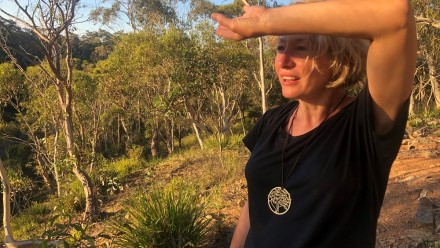ICEDS Member Profile: Dr Sarah Milne
From mechanical engineering to political ecology. It might seem like a leap for some, but for Dr Sarah Milne from the Crawford School of Public Policy, it was a natural progression.
“I originally trained as an engineer, but I soon moved into more applied environmental and community development work,” said Sarah, who complete a PhD in Geography at the University of Cambridge.
“Geographers study the relationships between society and nature, and my field is political ecology – a wonderful way to explore environmental struggles of all kinds,” she said.
Before joining The Australian National University (ANU) full-time as a Lecturer in 2016, Sarah spent over a decade working on forest conservation and community-based natural resource management. Most of her fieldwork was conducted with international environmental NGOs in Cambodia, where human needs and natural resources are deeply intertwined.
As a part of this work, Sarah was involved in implementing and researching forest carbon projects. In 2021, she applied this experience in her work on the ANU Below Zero initiative, looking at the best ways to offset the University’s residual emissions.
“With Australia’s commitment to achieve net zero emissions by 2050, we are going to see a large uptick in demand for carbon offsets,” said Sarah, highlighting that in the last year Australian carbon credit prices surged by 180 per cent.
“Markets need to be regulated to ensure that they do not generate perverse outcomes for people and nature. Carbon markets are the same – and this is a key domain for future research and action,” she said.
Sarah hopes her work on the Below Zero Initiative will lead to articulating best practice in carbon removal, for both practical and scholarly purposes.
“This is especially important for land-based carbon projects, which - if done well - can drive ecological restoration and honour Indigenous custodianship of the land,” she said.
Sarah is also currently Chief Investigator on an ARC Discovery Project. Led by Professor Sango Mahanty, the project develops the concept of “socio-ecological rupture”, which is used to interpret the societal and political effects of dramatic environmental changes.
“While our empirical focus has been on hydropower dams in the Mekong region, the rupture concept has much wider relevance for our troubled times, now that climate change is contributing to unprecedented environmental transformations,” said Sarah.
As a member of the ANU Institute for Climate, Energy and Disaster Solutions (ICEDS), Sarah has found a strong network of people working to navigate the climate crisis.
“This is the challenge of our time, and I cannot imagine finding a better group of people with whom to tackle this,” she said.
“ICEDS has helped me to broaden my perspective on climate change responses, given that its membership works on a wide range of issues, from technological innovation to socially just energy transitions,” she concluded.











